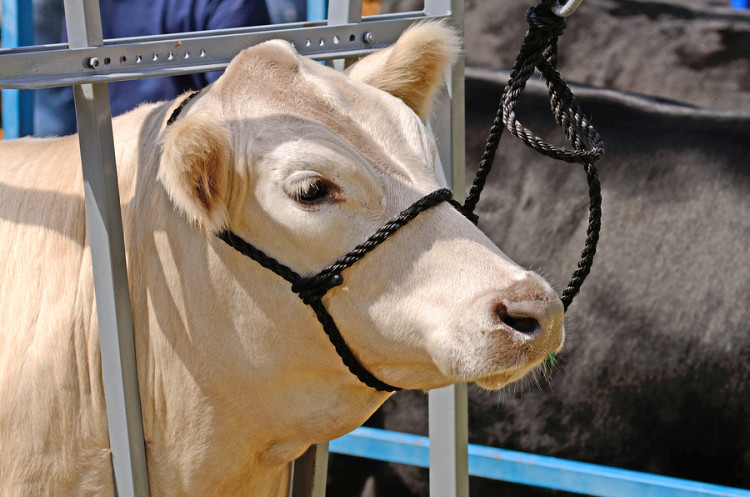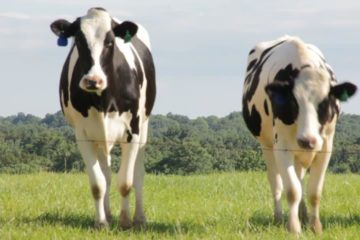Am I A Carnivore?

By Elizabeth Bennett
Although claiming that homo sapiens is a carnivorous animal is an oft-employed aphorism used when debating the virtues of a vegetarian diet with family members, the truth is that there is no yes-or-no answer to this question, or at least not one which will bear too much scrutiny. It is true that we possess canine-type teeth, designed to rip and tear flesh — it is also true that we have a digestive system powerful enough to cope with a meat diet — and we certainly have a taste for a turkey dinner or a good juicy steak.
However, in the immense variety of vegetation available on our planet, there is a substitute for every animal-derived foodstuff we can imagine. In addition, these are often more valuable, nutritionally, to our bodies.
To properly assess the issue, we have to look at our ancestors and their evolution to determine the real story behind our dietary preferences. If we consider our closest relatives, apes and other primates, they are usually (but not exclusively) herbivorous animals but there are some species that could be described as ‘omnivores of convenience’ – that is, eating insects or small mammals and reptiles when they wander by, as a kind of specialty dish to liven up their usual vegetarian diet.
Orangutans do this, for instance, as do chimpanzees and other less well-known species of primate. These primates could not survive on a diet of meat alone — but their usual situation of being confined to a specific foraging area means that the vegetation available to them is limited or repetitive, and the occasional variation in their diet is interesting, often delicious, and sometimes easier to assimilate than the tougher vegetation that comprises their usual fare.
Curiosity and an investigative nature being the prime movers in the march of evolution, it follows that trying new foods, whether of plant or animal origin, would be inevitable in the development of every species and most especially in humans, as other factors combined to stimulate and expand on these basic characteristics. Moreover, the foods that didn’t kill you (thereby removing you from the gene pool) would make you stronger and encourage the development of a physiology that could cope with and benefit from the more varied diet, creating a self-perpetuating cycle of development and inquiry.
In the case of humans, there have been other factors that have greatly accelerated this development. Increasingly able to assimilate knowledge, increasingly mobile, and eventually able to reach every habitat on the planet and every plant or creature that lives there, we have access to a staggering variety of nutritionally viable foodstuffs. We have quickly progressed from being ‘omnivores of convenience’ to, at least in the wealthier and more developed countries, ‘omnivores of choice’. We can make intelligent choices about what we eat, whether it is good for us, whether it will disagree with us, and whether it complies with our moral, religious or behavioural codes. This is the stage of evolution we have now reached.
We have long since left behind us the limitations of being carnivorous or herbivorous by nature, and therefore neither term is sufficient to describe humanity. The only term to come close to describing our eating habits is ‘omnivorous’, but even this falls short of a complete description. Maybe it is time for a new word to be invented — how about ‘selectivore?’







No Comment